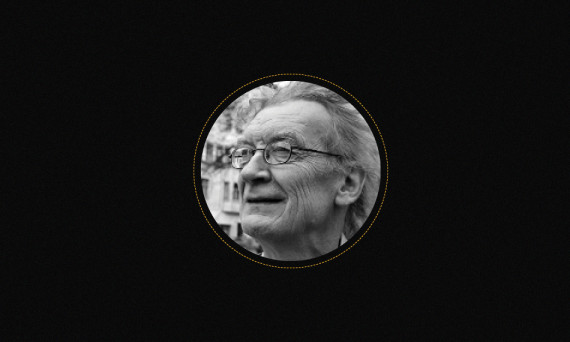The EUSP community mourns the death of Risto Alapuro, Finnish sociologist, who had a long-standing association with our university and played the founding role in the organization, evolution and survival of the former Department of Political Science and Sociology and current Department of Sociology at European University at St. Petersburg. Risto will be always remembered as a particularly optimistic, inspiring and attentive friend, colleague and advisor.
I remember the first time I met Risto — it was in Moscow in 1987 or 1988. He was at the Institute of Sociology there and we went for the dinner in the nearest cafe. He was extremely interested in Perestroika and Russian democratization. His research was about 'neformaly' and emerging civil society. From him I learnt about Charles Tilly concept of political opportunities and collective action repertoire. Later, he came to St. Petersburg and continued his studies of the emerging Russian civil society there. He was optimistic about the future of Russian sociology and helped a lot in the building up the new sociological institutions in St. Petersburg and particularly connection between St. Petersburg and Finnish sociologists.
As a member of the international board of PNIS department in the first decade of EUSPB he helped to establish the double MA degree — he was one of supervisors of MA dissertations. It was he and his colleagues who contributed to the survival of EUSPb during two breakdowns in 2000s.
When we learnt about his death we realized that the whole era has ended, he left this world still very early, we will miss him and remember with deep gratitude and recognition for his profound work and his calm and consistent personality of true friend.
Elena Zdravomyslova
Professor Emeritus, Department of Sociology
Ристо был одним из первых, кто обозначил новую эру в российской социологии, в академии, в жизни — в конце 1980-х мир становится открытым, демократичным, новым. Он был одним из первых, кто появился в нашем сообществе после открытия железного занавеса с огромным интересом к социологии, общественным движениям, политическим изменениям. Он заразил многих из нас интересом к политической социологии, которую мы познавали и как участники, и как исследователи. Через десять лет — я и мечтать о таком не могла — он стал моим супервизором при написании диссертации, и потом оппонентом. Острые суждения и острые вопросы сочетались с бесконечным дружелюбием и постоянной поддержкой. Это большой ученый и замечательный человек. Последующие годы Ристо был рецензентом работ многих наших магистров, нашим постоянным собеседником и коллегой, в Петербурге и в Хельсинки, в мире больших надежд, транспарентных границ и транснационального знания. Я бесконечно благодарна ему за эту эпоху, за личное и профессиональное общение.
Анна Темкина
Профессор, факультет социологии
I met Risto as PhD student while participating in our joint Academy of Finland’s project on reform of infrastructure in Cherepovets and then contacted him several times while doing comparative research on governance models in universities in Russia, Finland and Germany. Risto was always particularly supportive of young colleagues and helped us work our own intellectual quandaries. He will be greatly missed and remembered by generations of young students, to whom he gave his time, attention and energy. RIP, Prof. Alapuro.
Olga Bychkova
Dean, Department of Sociology
Risto was one of those people who was immensely kind in giving himself to others. A very considerate and attentive friend, he was also a very helpful comrade in arms in whatever project we chose to undertake together. I think his contribution to the world sociology is well stated in the modest title of his key book — State and Revolution in Finland. He has described the way Finland fitted into the general world dynamics of the XXth century and thus made a sociological study of Finland a must — at least to us — those, who live across the border. He was always welcoming new methods of research, not limiting himself to different versions of civil society or class analysis. We worked together with methods derived from the work of Boltanski and Thevenot, and then Latour, and in his articles and discussions Finland was always a useful mirror to take a different look at either the usual countries of the capitalist core (i.e. France) or its periphery (i.e. Russia). Rest in peace.
Oleg Kharkhordin
Professor, Political Science Department, Director, Center "Res Publica"
